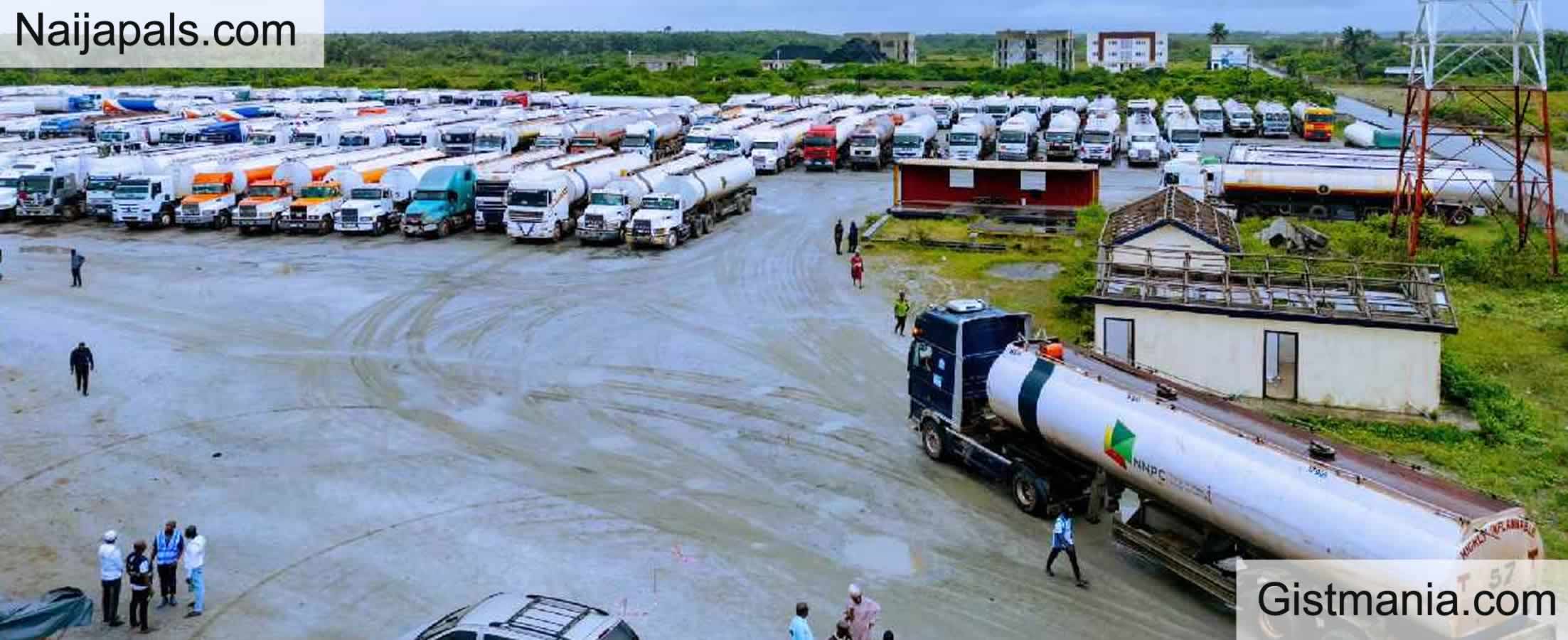
Nigeria’s petroleum marketers and retailers imported a total of 154.22 million litres of Premium Motor Spirit (PMS) between March 17 and 23, 2025, according to fresh data released by the Nigerian Ports Authority (NPA).
The development signals a shift in sourcing strategies, as marketers look beyond the Dangote Refinery for supplies amid its decision to halt sales in Naira.
The NPA report, released on Thursday, detailed that vessels carrying 115,000 metric tonnes — equivalent to 154.22 million litres of petrol — arrived through Tincan Port in Lagos, the Lekki Deep Seaport, and the Calabar port in Cross River State.
Meanwhile, the Dangote Refinery itself imported 654,766 metric tonnes of crude oil during the same period. The first batch of refined petrol, a 20,000 metric-tonne shipment allocated to West African Port Services, docked at the Dangote terminal on Monday, March 17, at 4:03 pm.
Two other vessels, each carrying 20,000 metric tonnes of petrol, arrived at Tincan and Calabar seaports the same day. Another vessel, the Watson, berthed at the Ecomarine terminal on Thursday, March 20, at 3:18 pm, with Kach Maritime as its handling agent.
Binta Saleh’s vessel, loaded with 5,000 metric tonnes of petrol, was scheduled to dock at Tincan port on Friday, March 21, just after midnight. The Calabar port also prepared for two more shipments — one carrying 15,000 metric tonnes on Saturday, March 22, at 11:06 am, managed by Peak Shipping, and another 15,000 metric-tonne vessel arriving at Ecomarine terminal on Sunday at 5:10 pm.
In total, the seven vessels are expected to deliver 115,000 metric tonnes of PMS, translating to approximately 154.22 million litres, based on the conversion rate of 1,341 litres per metric tonne.
This spike in imports coincides with Dangote Refinery’s controversial decision to stop selling petrol in Naira, a move reportedly tied to the breakdown of a Naira-for-crude supply deal with the Nigerian National Petroleum Company Limited (NNPCL).
The Petroleum Retailers Outlets Owners Association of Nigeria previously hinted that its members might explore alternatives to NNPCL and import fuel independently if domestic supply conditions worsen.
The import drive also reflects ongoing challenges in local refining capacity. According to the Nigerian Midstream and Downstream Petroleum Regulatory Authority, Nigeria’s three operational refineries produce less than half of the country’s daily petrol demand, leaving imports to bridge the gap.
Adding to the economic strain, as of March 12, 2025, the landing cost of imported PMS fell to between N774 and N797 per litre, while Dangote Refinery’s ex-depot price remained higher, ranging from N815 to N825 per litre — further influencing marketers' decisions to seek cheaper alternatives abroad.
The unfolding situation raises fresh concerns over fuel availability, pricing, and the long-term stability of Nigeria’s downstream oil sector.
| Posted: at | |





 TRENDING GISTS
TRENDING GISTS  Police Arrest 228 Suspects In Enugu
Police Arrest 228 Suspects In Enugu Fan Gushes As MC Oluomo’s Daughter Gets Engaged
Fan Gushes As MC Oluomo’s Daughter Gets Engaged VIDEO; "Davido Gifted My Girlfriend ₦10 Million For Supporting Me" - Rapper, Odumodublvck
VIDEO; "Davido Gifted My Girlfriend ₦10 Million For Supporting Me" - Rapper, Odumodublvck Mayor Of Boston Celebrates Nigerian Singer, Rema’s Role In Championing Afrobeat Worldwide
Mayor Of Boston Celebrates Nigerian Singer, Rema’s Role In Championing Afrobeat Worldwide PHOTOS: Troops Arrest Four Suspected Terrorists, Recover Arms And Ammunition In Taraba
PHOTOS: Troops Arrest Four Suspected Terrorists, Recover Arms And Ammunition In Taraba Labour Party Suspends Abia Governor Alex Otti, Five Others Over Alleged Anti-Party Activities
Labour Party Suspends Abia Governor Alex Otti, Five Others Over Alleged Anti-Party Activities